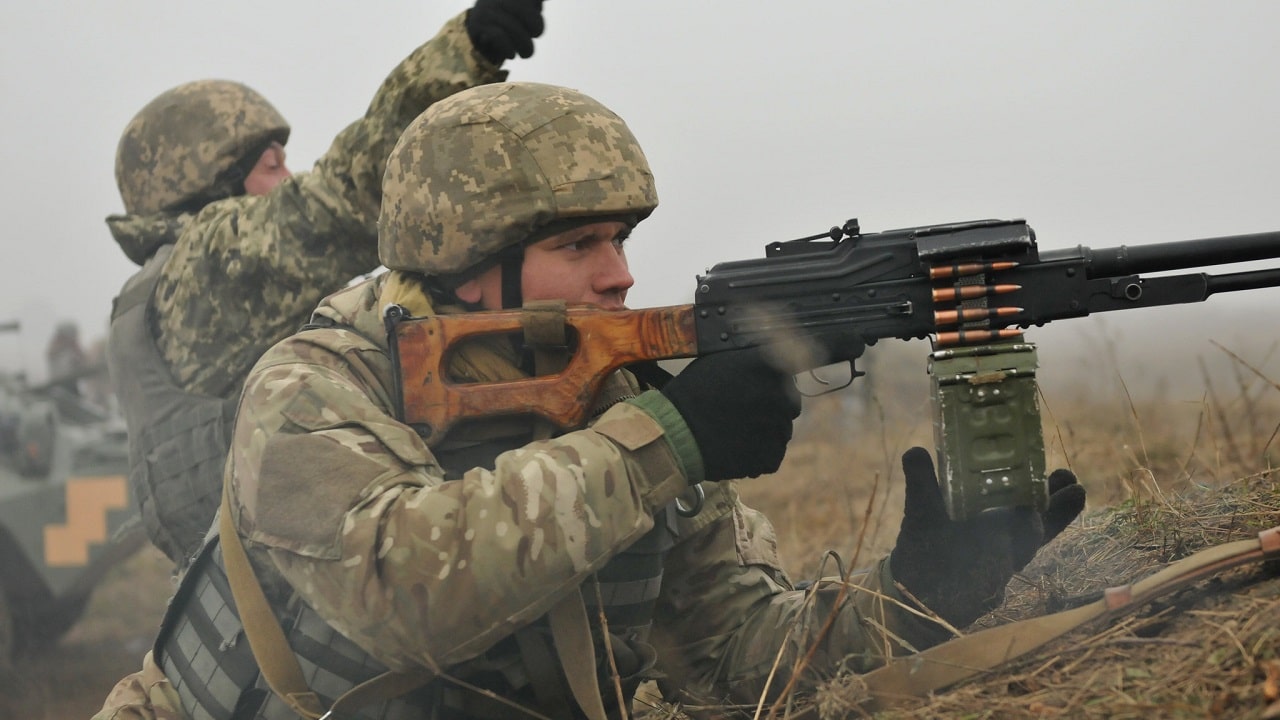Things are heating up on the resistance front in Ukraine.
There was a total of 24 resistance incidents in the 19 days under review, for an average of 1.26 per day.
Although the previous period under review, August 4-13, averaged 3.4 incidents per day, only 65 percent were violent, whether directed against persons or property. In August 13-31, violent incidents constituted 83 percent of the total.
More importantly, there were six incidents of violence against property in August 13-17 and only three in August 18-31. In contrast, violent incidents directed at persons numbered 11, and all took place after August 17.
In a word, Ukraine’s partisans are turning increasingly toward violence and especially toward violence against collaborators:
August 13, Melitopol, Zaporizhzhya province: partisans destroy rail bridge southwest of city, thereby disrupting rail traffic with occupied Crimea.
August 15, Dzhankoy and Simferopol, occupied Crimea: partisans distribute anti-Russian leaflets.
August 16, Kursk province, Russia: railroad tracks destroyed with explosive, possibly the work of Ukrainian partisans.
August 16, Kursk province, Russia: Russian security service, FSB, accuses Ukrainian saboteurs of felling six pylons supporting high-voltage electric cables on August 4, 9, and 12,
August 16, Dzhankoy, occupied Crimea: Russian Ministry of Defense accuses Ukrainian saboteurs of setting off massive explosions, declares state of emergency in Dzhankoy district. Ammunition depots and railroad tracks destroyed.
August 16, Lysychansk, Luhansk province: massive explosion in city, possibly the work of partisans.
August 16, Melitopol, Zaporizhzhya province: two explosions destroy cables transmitting Russian television.
August 17, Melitopol: explosion in city center near Russian command post.
August 17, Melitopol: explosion fells pylon supporting electric cables.
August 20, Mariupol, Donetsk province: failed assassination attempt on collaborationist mayor, Kostyantyn Ivashchenko.
August 20, Vasylivka district, Zaporizhzhya province: unknown number of Russian soldiers poisoned with Botulinum toxin type B. Russians accuse Ukrainians of “chemical terrorism.”
August 21, Melitopol, Zaporizhzhya province: partisans slit throat of Russian soldier who attempted to sexually assault a minor.
August 21, Melitopol: several explosions set off in city.
August 21, Kherson: partisans distribute leaflets calling on local population to join them.
August 23, Kherson province: failed assassination attempt on Ihor Telehin, deputy head of collaborationist department of internal policy.
August 24, Mykhaylivka, Zaporizhzhya province: car bomb kills collaborationist “mayor,” Ivan Sushko.
August 24, Nikolske, Mariupol district, Donetsk province: partisans raise Ukrainian flag in honor of Ukraine’s Independence Day.
August 24, Novoraysk and Borozenske, Kherson province: partisans raise Ukrainian flag in honor of Independence Day.
August 25, Pryazovske, Zaporizhzhya province: partisans bomb administrative building where referendum was being organized and Russian passports distributed.
August 26, Berdyansk, Zaporizhzhya province: assassination of Oleksandr Kolyesnikov, collaborationist deputy head of the city’s State Automobile Inspection.
August 27, Mykhaylivka, Zaporizhzhya province: collaborationist head of local police, Andriy Ryzhkov, found hanged.
August 28, Hola Prystan, Kherson province: Oleksiy Kovalov, collaborationist deputy head of “provincial government” shot and killed in his home. His wife’s throat slit.
August 28, occupied Crimea: Novaya gazeta reports that at least ten Ukrainian groups are involved in sabotage and intelligence gathering.
August 29, Mariupol, Donetsk province: two-man Russian patrol steps on mine planted by partisans. One dead, one severely wounded.
August 30, Kherson province: failed assassination attempt of collaborationist acting head of the State Automobile Inspection, Major Snyeshin.
August 31, Berdyansk, Zaporizhzhya province: explosion at headquarters of collaborationist “We Are Together with Russia” organization, which is preparing a referendum in the province.
Clearly, Ukrainian partisans are taking the war to the Russian rear. And they’re making collaborators pay a high price for their collaboration with the invaders. It’s hard to avoid the conclusion that partisan activity is being coordinated with the ongoing Ukrainian efforts to retake Kherson province and, eventually, the entire occupied south.
Expert Biography: Now a 1945 Contributing Editor, Dr. Alexander Motyl is a professor of political science at Rutgers-Newark. A specialist on Ukraine, Russia, and the USSR, and on nationalism, revolutions, empires, and theory, he is the author of 10 books of nonfiction, including Pidsumky imperii (2009); Puti imperii (2004); Imperial Ends: The Decay, Collapse, and Revival of Empires (2001); Revolutions, Nations, Empires: Conceptual Limits and Theoretical Possibilities (1999); Dilemmas of Independence: Ukraine after Totalitarianism (1993); and The Turn to the Right: The Ideological Origins and Development of Ukrainian Nationalism, 1919–1929 (1980); the editor of 15 volumes, including The Encyclopedia of Nationalism (2000) and The Holodomor Reader (2012); and a contributor of dozens of articles to academic and policy journals, newspaper op-ed pages, and magazines. He also has a weekly blog, “Ukraine’s Orange Blues.”
Note: Sign Up For Our Daily Newsletter Here.

